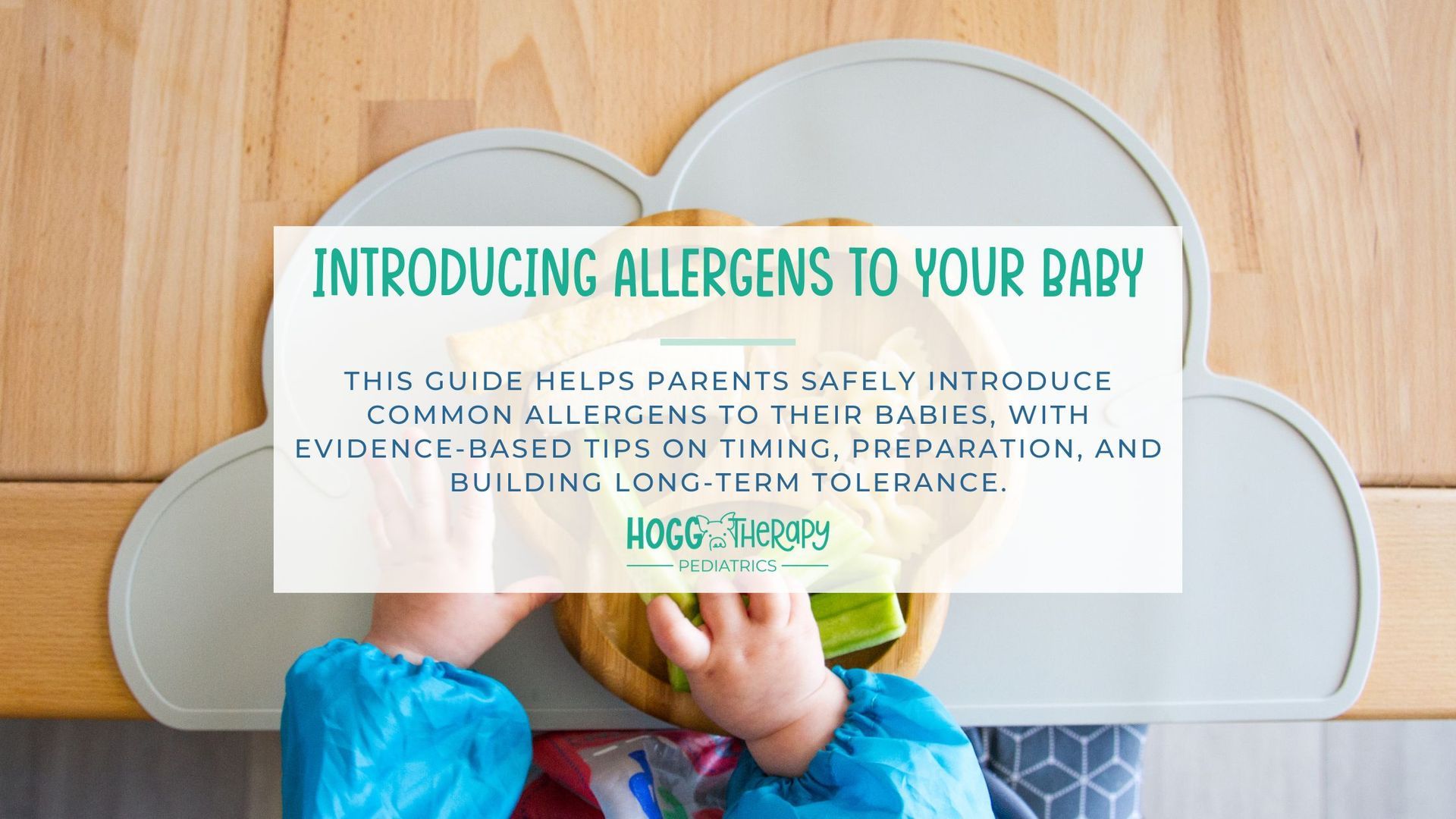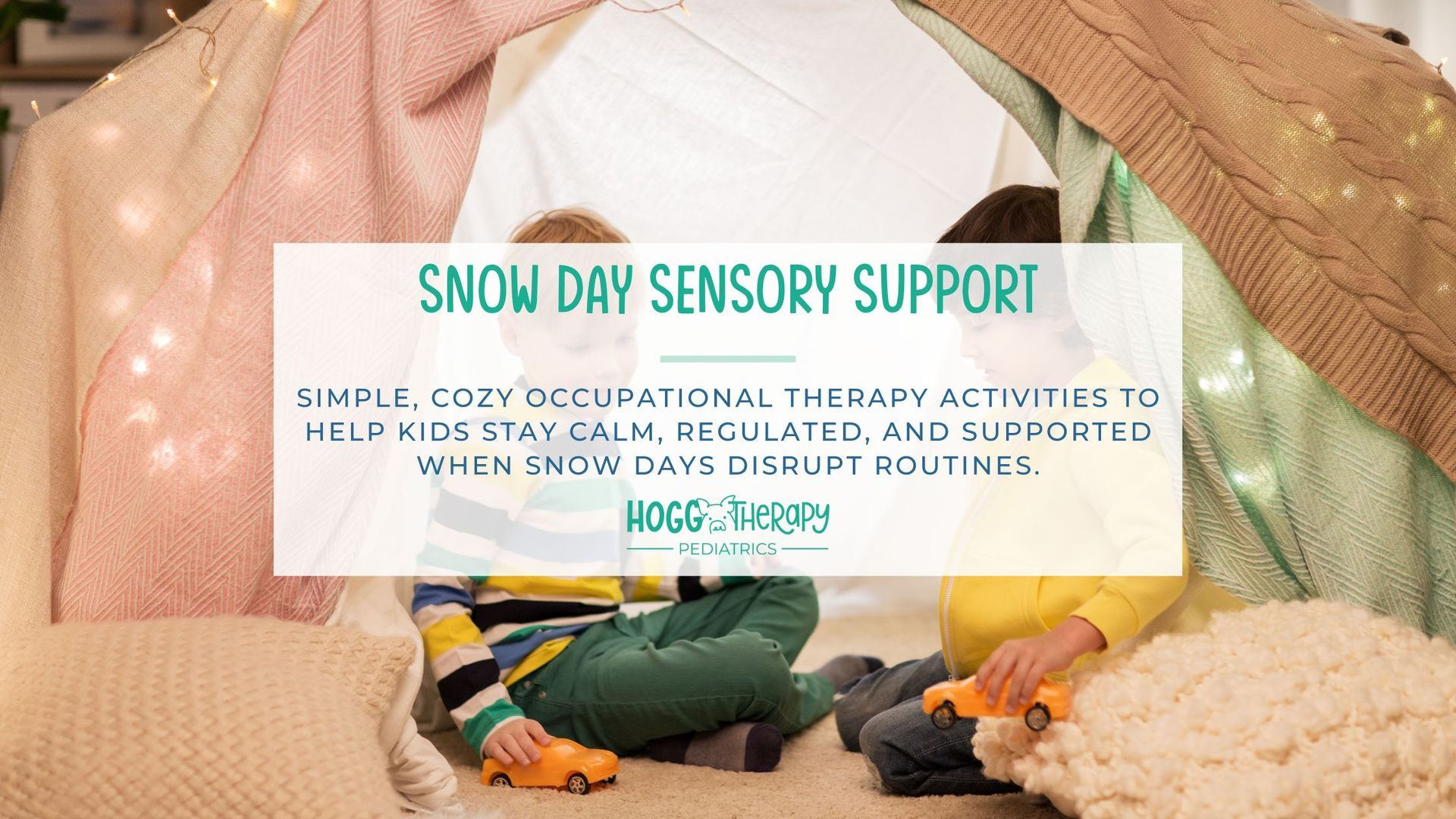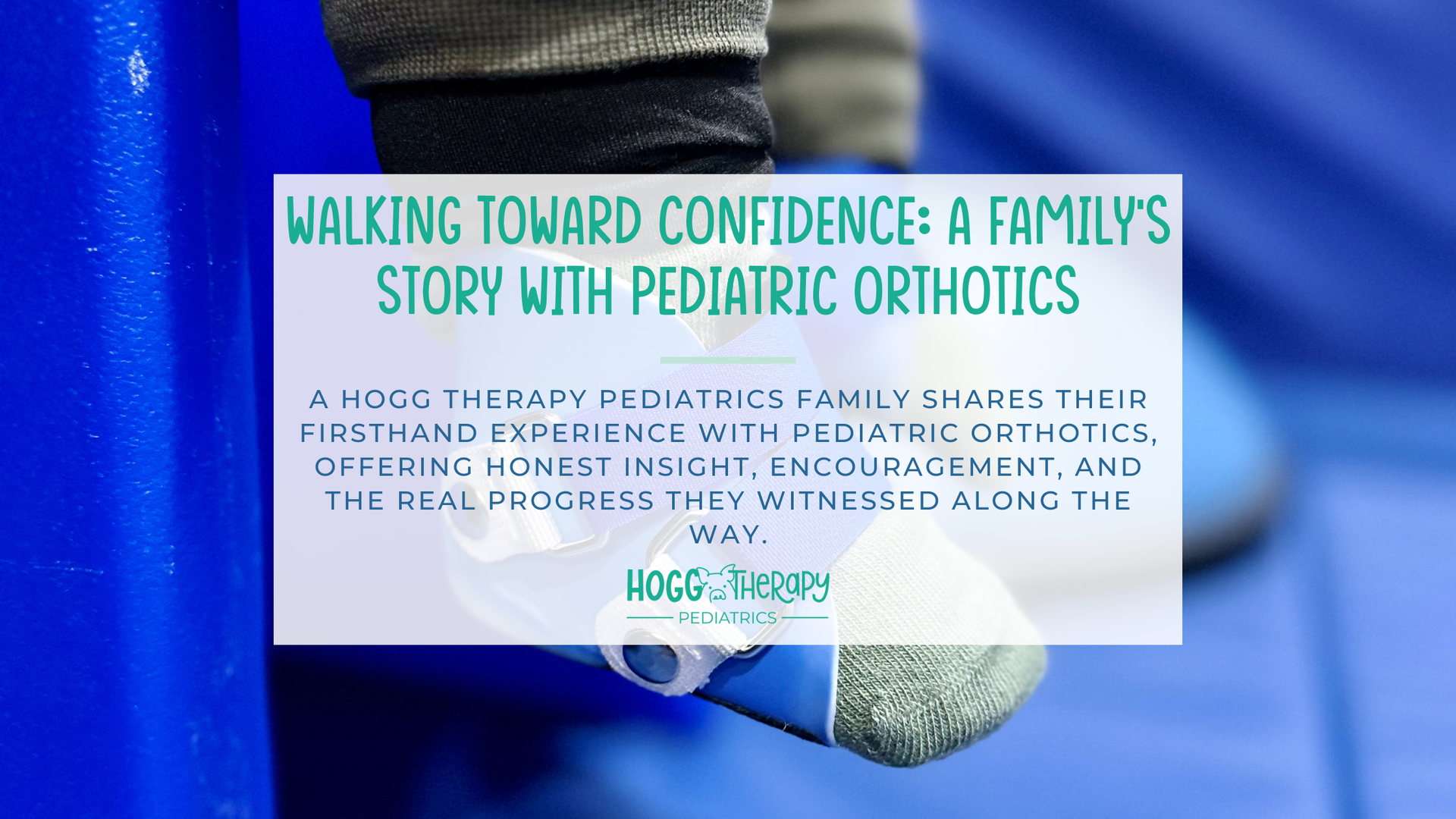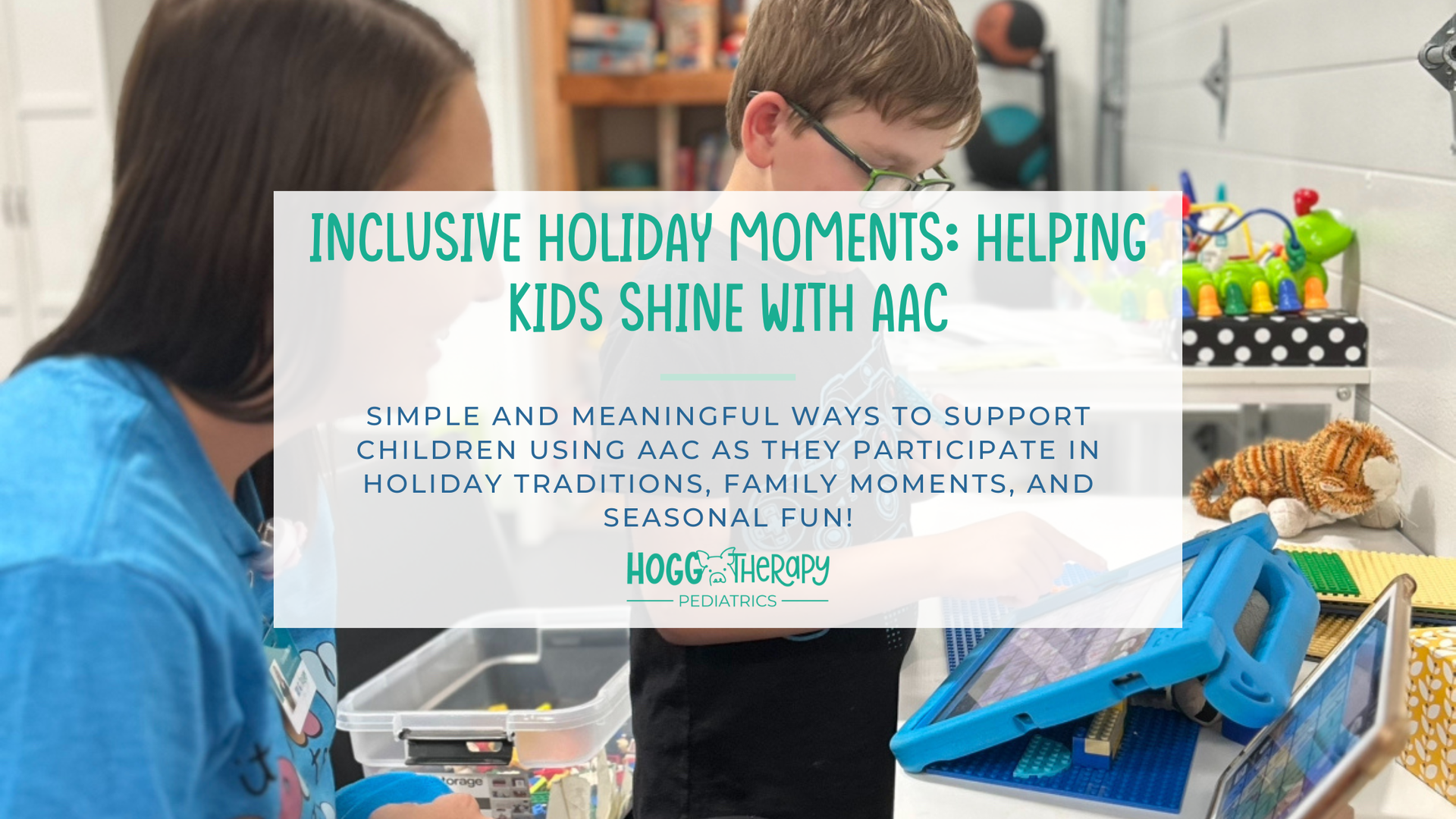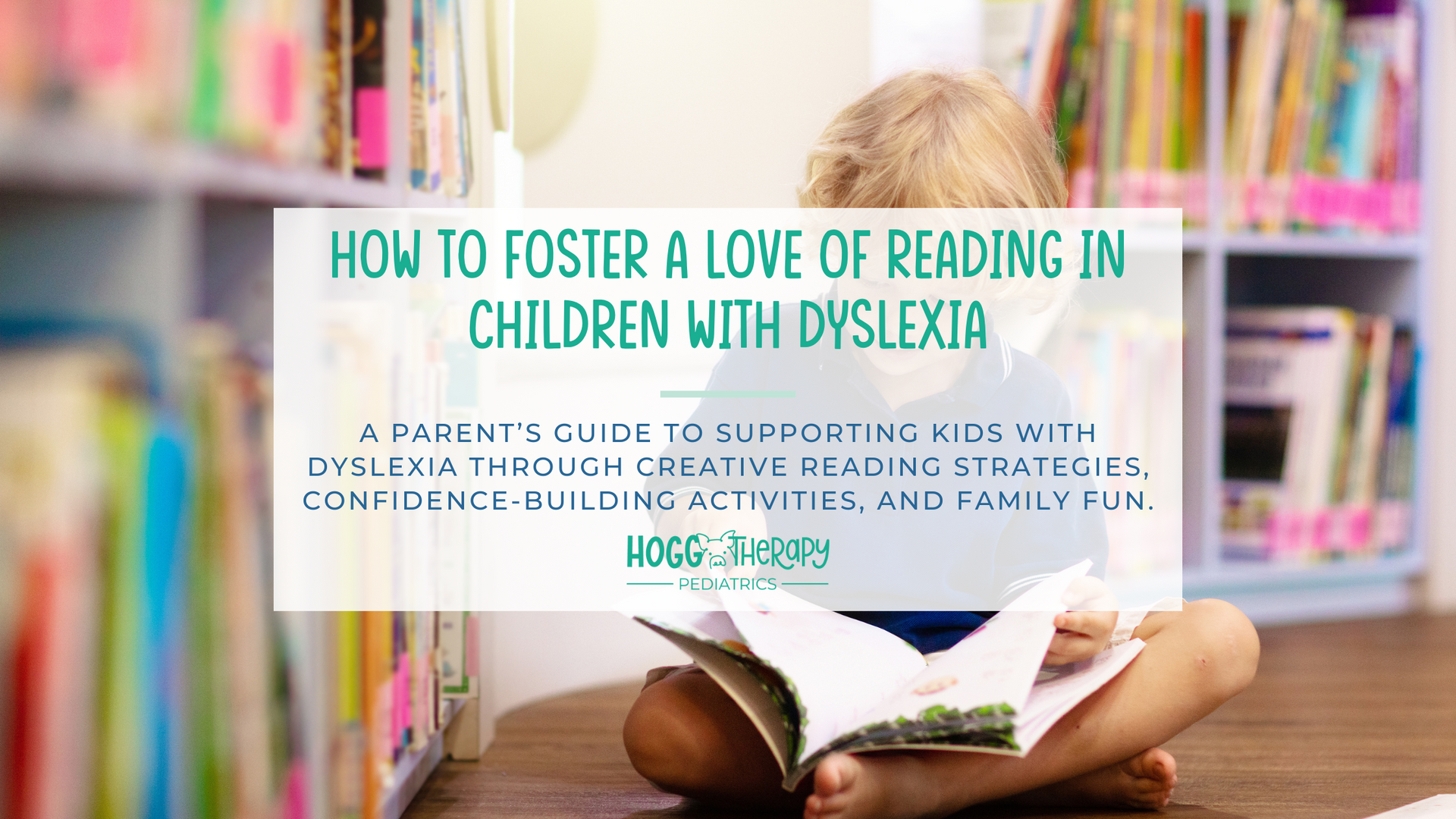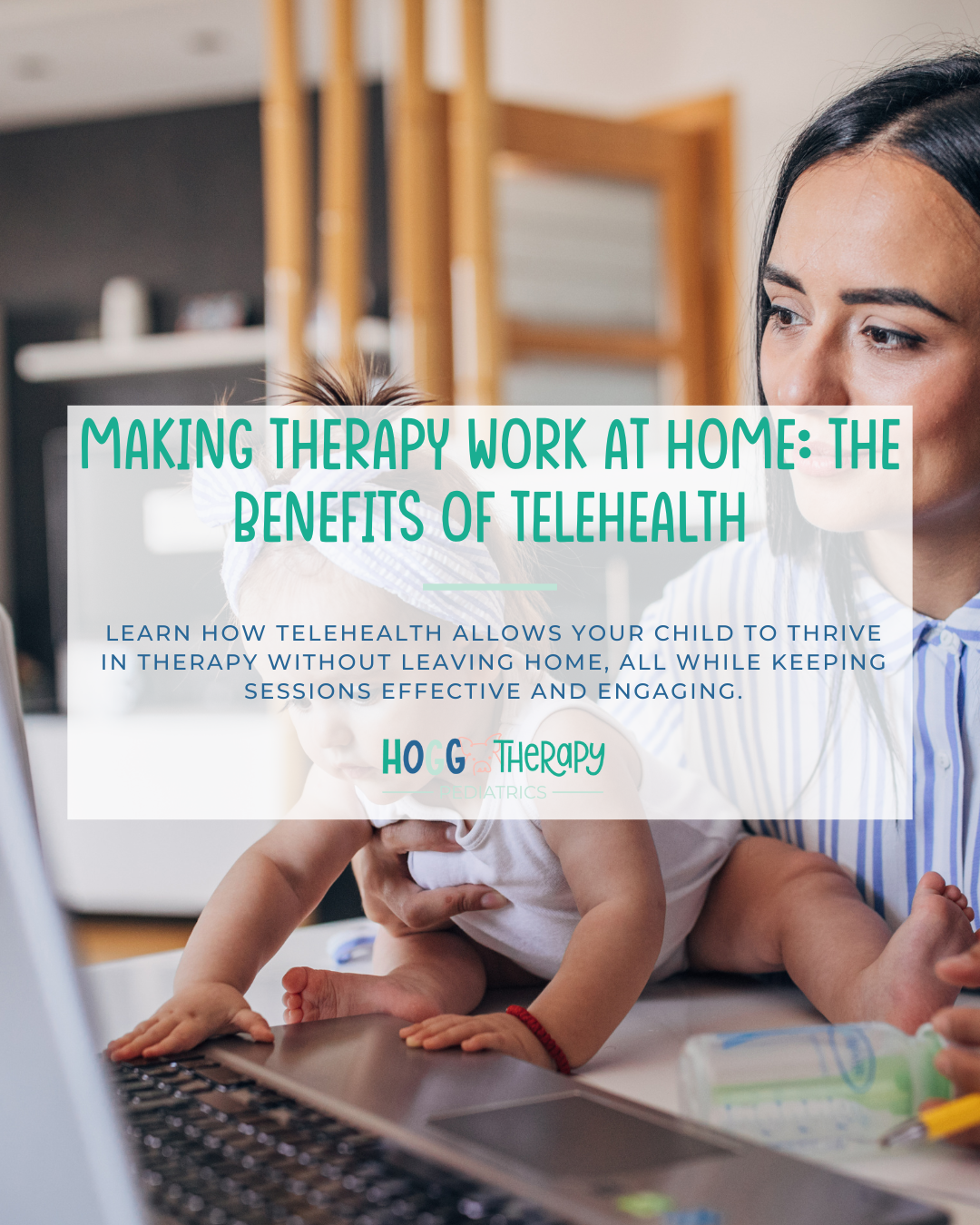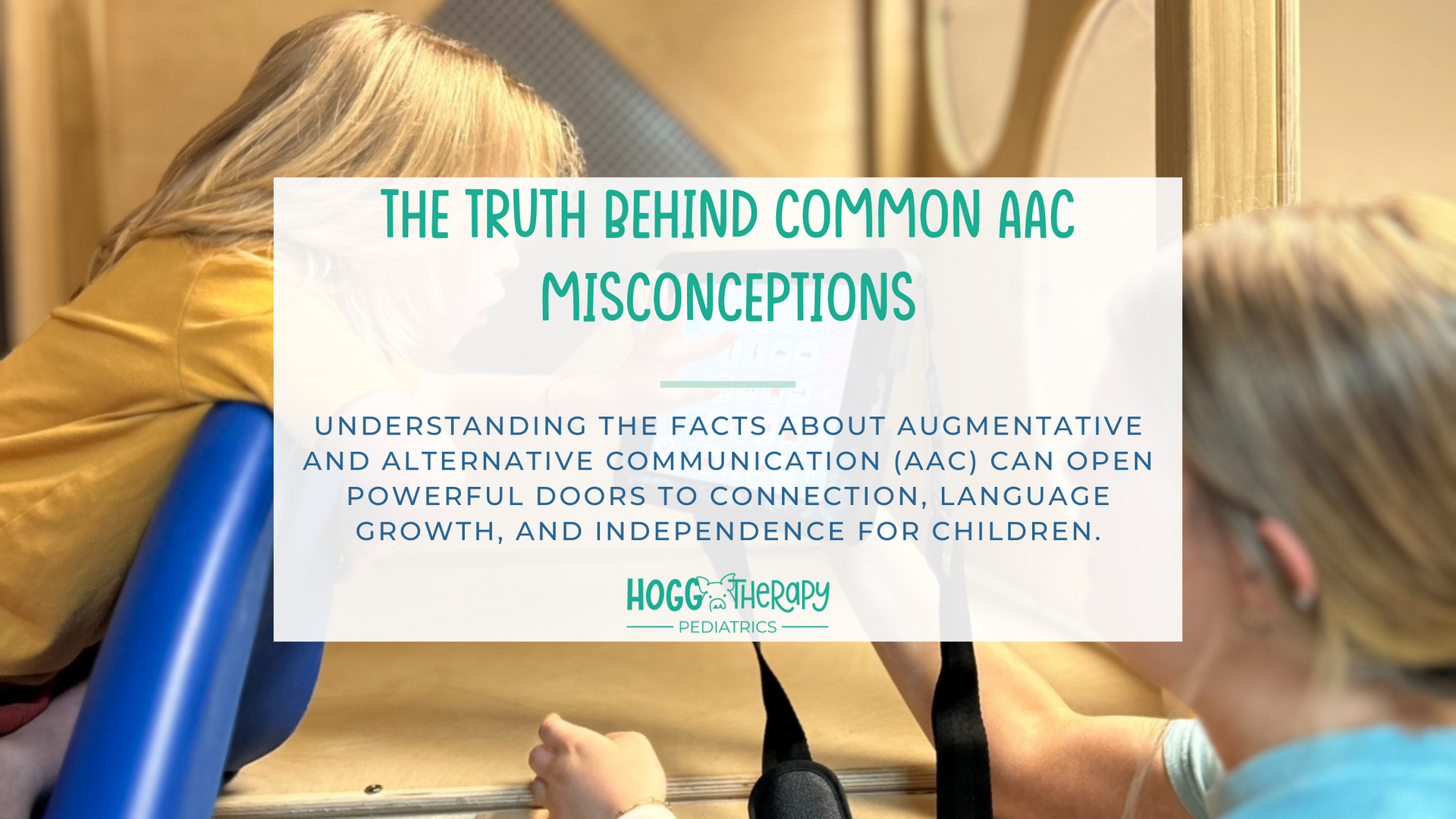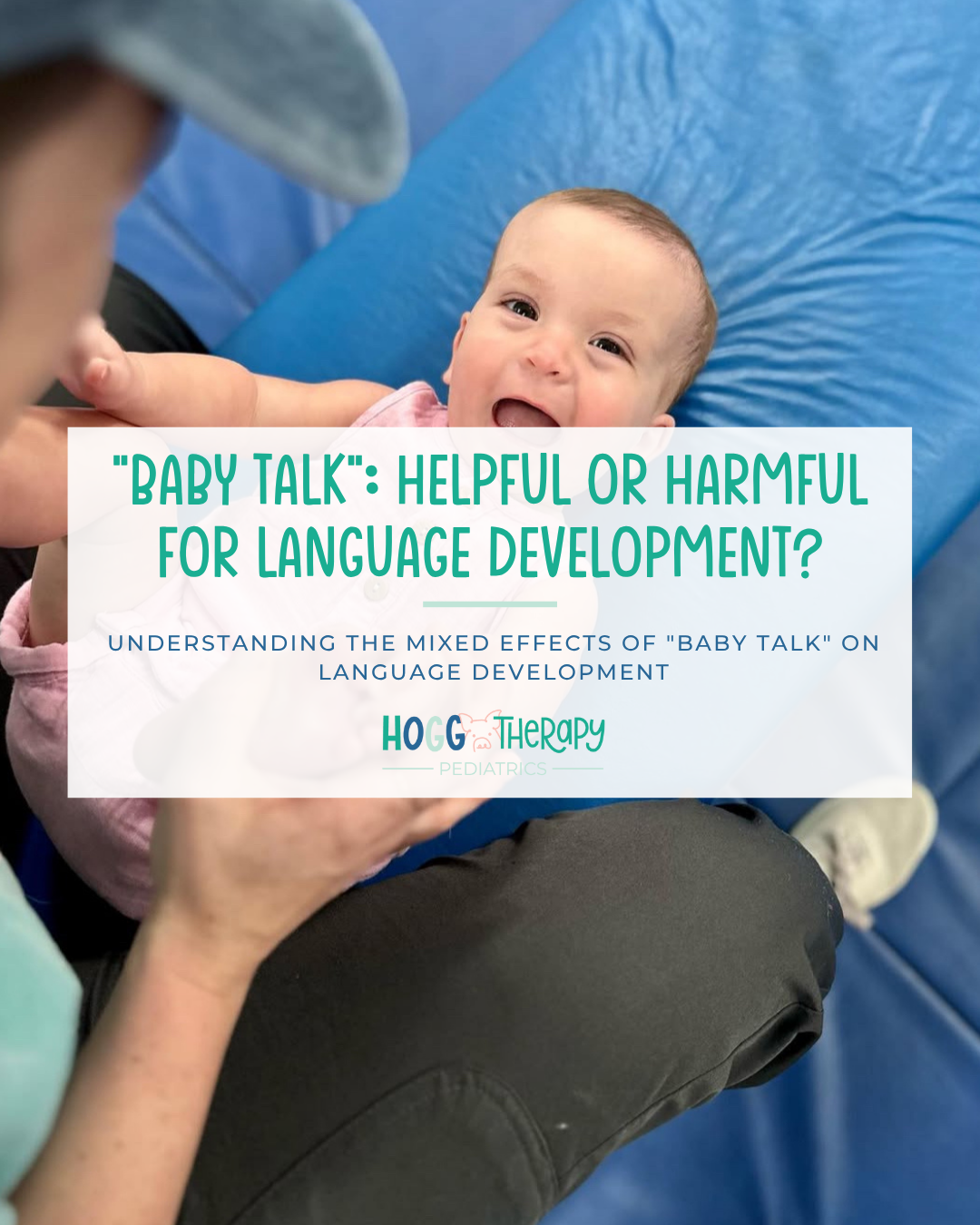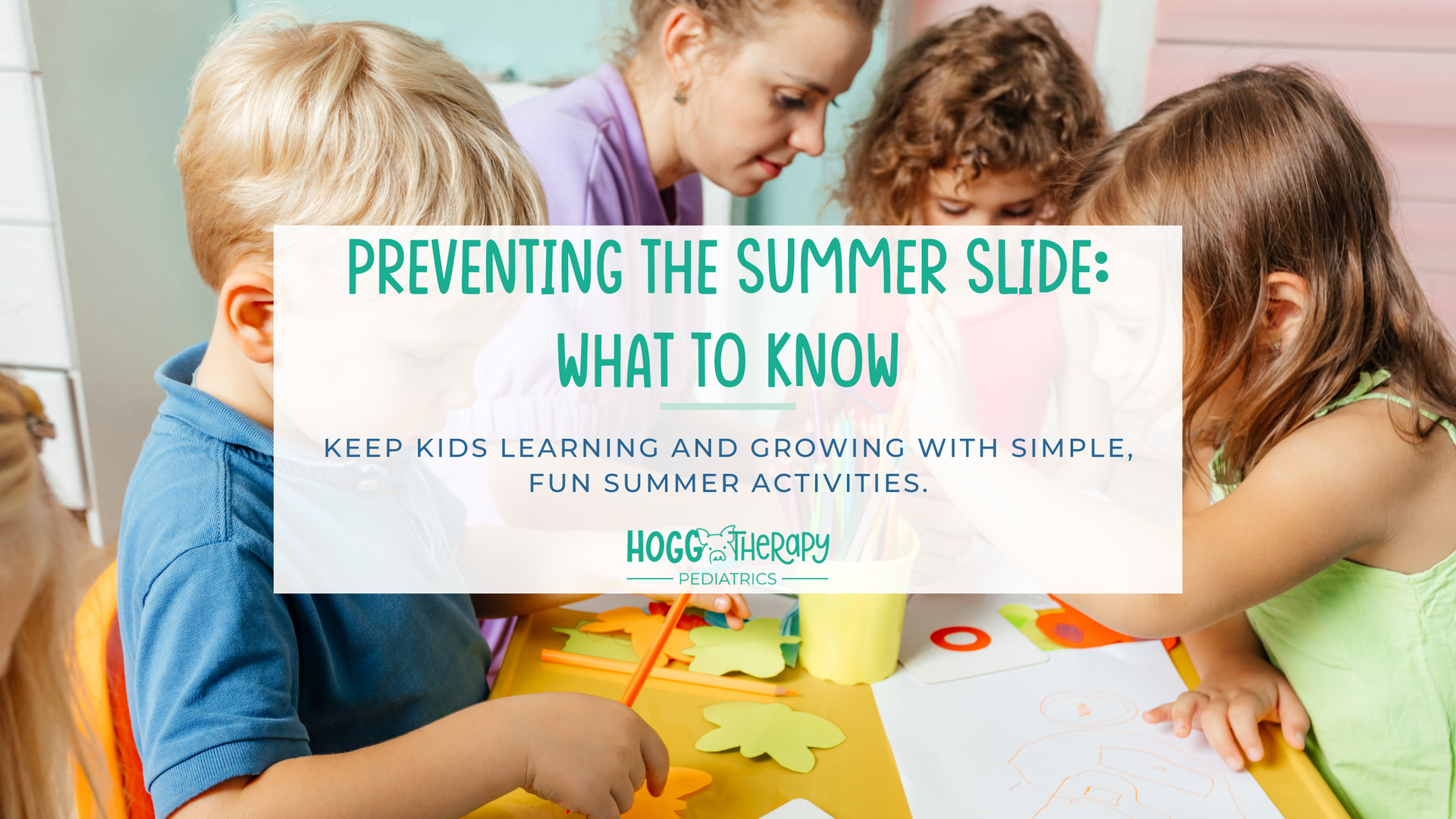Speech Disorders Simplified: Childhood Apraxia of Speech
Rachel Wilson M.S. CF-SLP
If your child has been having difficulties with speech development, it can be overwhelming to search through all the information out there on speech disorders, especially when the language is so technical. When you come across disorders like Childhood Apraxia of Speech (CAS), it can be difficult to figure out exactly what that is, which is why we’re here to help! Today, we’re simplifying CAS to make it easier to understand what it is, how it’s treated, and what you can do at home.
What is CAS?
Technically speaking, Childhood Apraxia of Speech (CAS) is a motor speech sound disorder in which the precision and consistency of movements underlying speech are impaired in the absence of neuromuscular deficits. The brain pathways responsible for planning the sequence of movements involved in producing speech are impaired. Simply, a child with CAS knows what they want to say but are incapable of planning and executing the movements in order to communicate their message. Typically, children with CAS have difficulty with sequencing of sounds, syllables, and words. Some children with CAS may develop a language or phonological delay. However, CAS can vary in severity and will look different in every child. CAS can be difficult to diagnose because its characteristics look similar to characteristics of other speech sound disorders. There is currently no singular test used to diagnose CAS. Speech-Language Pathologists (SLPs) often use multiple assessments and acquired knowledge to identify children with CAS.
Impact on Speech and Language Development
The speech of children with CAS is often unintelligible because of their inability to plan speech sound movements. Due to this disorder initiating in early childhood CAS can often disrupt the development of reading, spelling, writing skills, social communication, and academic potential. The overall effect on speech and language development will depend on the severity of the child’s CAS. As mentioned above, this disorder will look different in every child and will have different effects. Regardless of the severity, Childhood Apraxia of Speech is NOT a disorder that a child will “outgrow.” It will likely continue into adulthood. There is no known cure for CAS, but speech therapy can help minimize the effects of the disorder and maximize the child's ability to communicate.
Cause of CAS
Childhood Apraxia of Speech can be caused by a neurological conditions such as childhood stroke, infection, trauma, and tumor, etc. CAS can also correspond to a Neurobehavioral Disorder such Autism, Epilepsy, or Genetic Syndromes. However, most of the time the cause of CAS is idiopathic, meaning there is no observable neurological abnormality, disorder, or condition present.
Common Characteristics/Signs
CAS currently has no defining characteristics or symptoms that differentiate it from other childhood speech sound disorders. Current research is being conducted to build a concrete list of symptoms. Below is a sampling of symptoms that have been reported in children diagnosed with CAS. However, these symptoms are not necessary for diagnosing CAS. As mentioned above, SLPs use a variety of tools to diagnose a child with CAS.
Reported symptoms include:
- inconsistent productions of the same words/syllables
- vowel errors
- inappropriate prosody (pattern of stress and intonation in speech)
- groping behaviors
- lengthened and disrupted transitions between sounds and syllables
- atypical regression (words or sounds mastered but then lost)
Treatment Strategies
Since CAS is a disorder children likely do not outgrow, children with CAS benefit greatly from evidence-based speech therapy services. Research suggests that effective therapy for CAS should involve repetitive practice to improve the motor skills required to produce sounds and movement patterns of speech. There is not a “one-size-fits-all” approach for treatment. CAS is a complex disorder characterized by inconsistency, so different approaches work for different children. The overall goal of treatment for CAS is to help the child produce speech more clearly. Some common treatment strategies used with children with CAS are listed below:
- Augmentative Alternative Communication (AAC) The SLP will introduce the use of an aided system or unaided system to supplement or replace natural speech and writing. An example of an aided system is an iPad. An example of an unaided system is sign language.
- Motor Programming Approach The SLP will use visual, tactile, auditory, and cognitive feedback to help the child produce accurate speech movements to produce sounds. The goal of this approach is to improve the child’s speech production and intelligibility.
- Training Syllable Sequences/Rapid Syllable Transition Treatment (ReST) The SLP will have the child learn, practice, and repeat syllables and multisyllabic words. The goal of these approaches is to train motor planning flexibility, improve accuracy of speech sound production, control syllable stress, and increase fluency.
At-Home Activities and Tips
Treatment of CAS will take time, the most important thing parents and caregivers can do at home is provide a supportive environment to practice and grow. At home, parents can make practice fun through games and activities, but also remember to take breaks as needed. Lastly, it is important to have consistent and open communication with your child’s speech therapist.
Tips:
- Model and provide child with corrective feedback (use cues suggested by SLP)
- Have dedicated time to practice
- Quality over quantity
Set aside designated time once a day for about 30 minutes and let your child know that it’s time to practice their speech sounds. Set a timer to encourage your child to work hard during this designated time. Be consistent and repetitive with at home practice. Some ideas include:
- Play your child’s favorite board game, and practice a target sound/word every turn.
- Have your child pick their favorite book for you to read together. Work together to identify words with target sounds and practice.
- Play at the park. Practice the target sound/word every time you climb up the slide, push on the swing, or transition to a new playground toy.
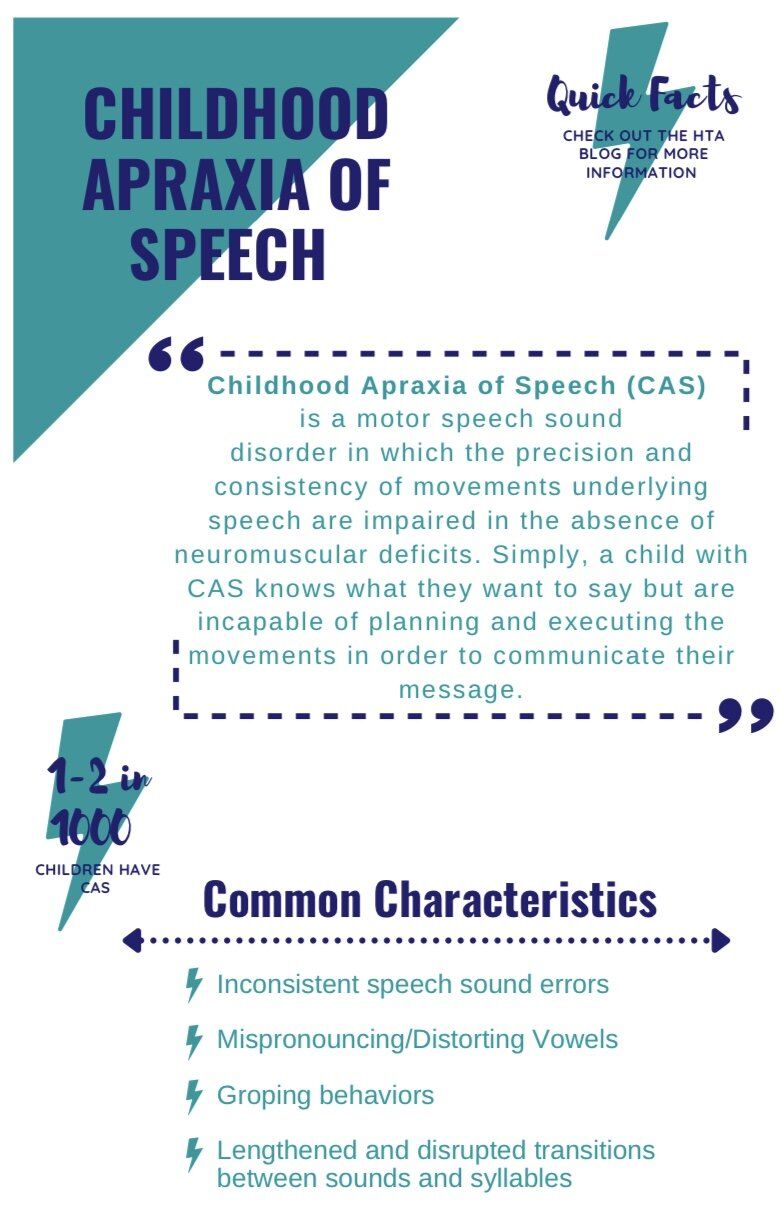
If you have any questions or concerns about your child’s speech development, we’d love to help! Contact Hogg Therapy at 859-353-3666 or visit our website here.
For more information about CAS, visit the resources below!



